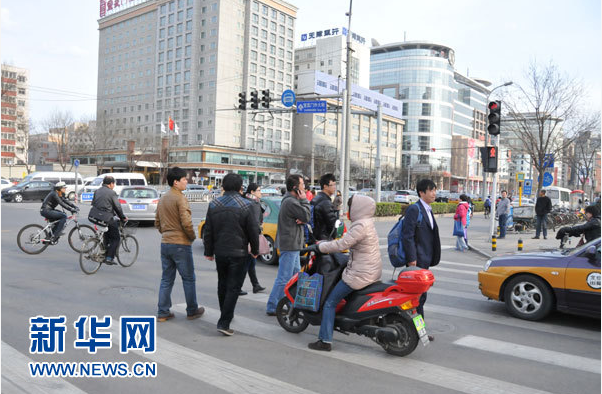
An aerial view of Suzhou, East China's Jiangsu Province. /Xinhua
An aerial view of Suzhou, East China's Jiangsu Province. /Xinhua
Suzhou, East China's Jiangsu Province, is now the subject of heated public debate after the local government launched a civil behavior scoring system that is supposed to monitor and evaluate people's behaviors in daily lives.
With concerns ranging from violation of human rights to a possible abuse of power, many have taken to the internet to question the rationale behind this launch, while Suzhou authorities have been reassuring the public that the system is only being run on a trial basis and will not be as intrusive as perceived.
The scoring system, known as the "civilization code," is currently composed of a "civil transport index," and a "volunteer index," with others yet to come online.
Linked to road manners and voluntary traffic duty participation, the civil transport index can be affected by behaviors such as traffic violations and driving under influence. The volunteer index, on the other hand, is measured by degrees of involvement in voluntary work, which the local authority said aims to help strengthen awareness of social responsibilities and duty.
For first-time users, signing up on the system will automatically add 1,000 points for both indexes, which according to an article published by local police, could serve as digital reference for future warning or punishment.
What's at stake?
"The attempt to quantify one's level of civilization is a show of overconfidence," Shu Shengxiang, a seasoned journalist, told local media. "No one has the right to set the criteria on that, because it is impossible to fairly, accurately, and comprehensively measure one's moral qualities."
Given the complexities and nuances of human nature, as well as the mutifaceted character of civilization, it is senseless to attempt to capture all those different sides in one net and hope to come up with an accurate evaluation of one's civilization levels, Shu added.

People run a red light. /Xinhua
People run a red light. /Xinhua
What Shu said marks one of the most compelling arguments against the rationales behind the system's launch. It also echoes some netizens' criticism that it violates human rights as the system attempts to classify people through unquantifiable standards. But cause for public concern is far from limited to this.
People are also concerned with what could be a potentially unlawful infringement on their privacy, as the system needs to collect a wide range of their personal information to be able to work.
Chinese people's growing sense of human rights should serve "as a reminder for government bodies to set up and promote policies in a more cautious manner to respect one's privacy and balance power with rights," Liu Huawen, executive director of the Human Rights Research Center at the Chinese Academy of Social Sciences, told the Global Times.
Not a precedent
Though the system is China's first, the rationale behind it is nothing new.
Sesame Credit, a credit-scoring system operated by Alibaba's subsidiary Ant Financial, has its own system that measures its users' credit by evaluating their personal information, but controversies surrounding the company's alleged violation of users' privacy led the firm to apologize in 2018.
Some other cities have also mulled the idea of introducing systems similar to that of Sesame Credit.
But unlike the company's system, which lowers users' credit score if they delay payment, the one proposed by these cities want to link local residents' credits with their behaviors such as road manners. Public backlash ensued and legal experts seriously challenged this notion, arguing that these measures have crossed legal boundaries.

A logo of Ant Financial Services Group is seen next to a logo of Alipay at the Digital China Exhibition in Fuzhou, Fujian province, China May 5, 2019. /Reuters
A logo of Ant Financial Services Group is seen next to a logo of Alipay at the Digital China Exhibition in Fuzhou, Fujian province, China May 5, 2019. /Reuters
If the points of Suzhou's scoring system are used to strip citizens of their access to certain social services, legal experts believe it will face the same problems.
Because of limited law enforcement resources and insufficient penalties for certain violations, it is understandable that the government wants to promote a more civil society through other channels, but these measures must be carried out in accordance with the rule of law, said Zhao Peng, a professor from the China University of Political Science and Law in Beijing.
If someone breaks the law when behaving in an uncivilized way, imposing additional restrictions on them could be an unlawful action, or constitute a violation of proportionality and excessive punishment, he explained.
"Building a more civilized society requires the government to promote self-discipline, rather than mandatory measures," Zhao added.
They can set "the civilization code" as a basis for rewards, but not as reference for the authorities to consider taking punitive measures against individuals, said Wu Shenkuo, executive director of International Center for Internet Rule of Law Beijing Normal University. "Linking citizens' basic rights of social insurances, employment and housing opportunities with the system is definitely off the limits."
Government's response
As debates intensify, the local government has been trying to fend off what they call "misunderstandings and misinterpretations."
A government official told The Paper on Sunday that signing up on the system is not compulsory, and that the system is based on the premise of voluntary registration.
Anyone staying in Suzhou can download the app, but it's not mandatory, the official continued. "We are just encouraging people to use it. Those who have shown good behaviors will be awarded and those awards will not undermine the fairness in distributing basic social services."
"The system is in the testing stage," the official said. "At the moment, we are also giving it a lot of thoughts."
On the "possible warning and punishment," the official said they are not meant to be used against individuals. "As for awards and punishment, we are not classifying people by their civilization levels, nor do we intend to link their score to bank credits, housing and employment opportunities."